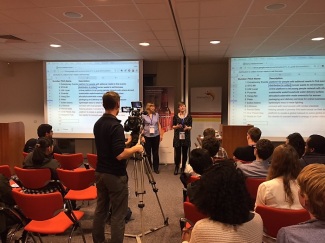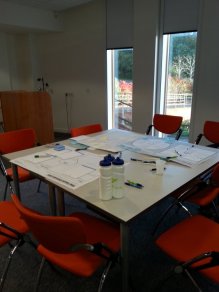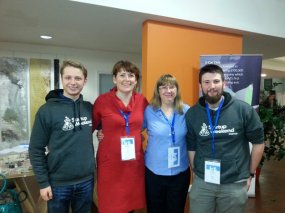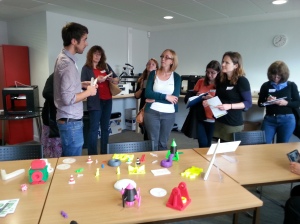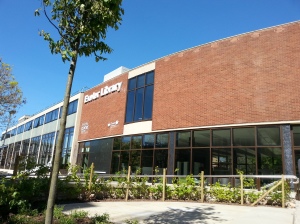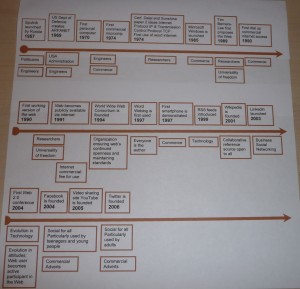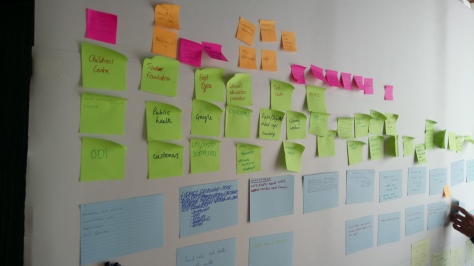
30 people from libraries, councils, university, tech companies, etc came to Exeter Library for the first Libraries Unlimited Data Discovery Day. The day was run by ODI (Open Data Institute) Devon and was part of an Arts Council England funded two-year research project being carried out by Libraries Unlimited and the University of Exeter Business School to understand the impact of libraries on local communities in Devon.
Luke Burton from Newcastle Libraries shared their journey to releasing their data for anyone to use but explained that they aren’t yet at the stage of looking at outcomes and return on investment. This was followed by group discussions about the data we have, data we want, people and organisations we want to link with, equipment and what are the major questions we want the data to answer. The discussions really widened the scope of what we could do with so many possibilities of positive collaboration to discover health, economic, etc impact.
Beverley Hawkins of the University of Exeter Business School gave a presentation on organisational data and ethical enquiry. She gave an overview of the issues but also gave the advantages of consistent ethical practice. Lots of further discussion will need to follow and an open data policy to be devised. Gemma John, Architecture Anthropologist then talked about her project ‘Designing libraries in 21st century – lessons for the UK’. She explained about the types of data she collected from libraries across 2 continents and the data she collected from the surrounding areas. She used the data to show how people interact with library services and spaces. She gave me a copy of her report which I am looking forward to looking into in more depth.
This was followed by more group discussions and trying to amalgamate information into areas to try to discover the most important themes from the day. In discussion with Luke it appears that he and his colleague Aude Charillon are the staff involved in Newcastle’s Libraries open data project so to have 15 library staff from across Devon involved in Libraries Unlimited open data project is a very positive development. He felt that staff buying into the value of data is key. Other key themes that stood out were
- Use the resources to achieve the best value so choose 3 or 4 things from the complexity of library data
- Start small, experiment, put it out there, see what feedback you get and develop the culture of open data
- Important to work out how to capture anecdotal evidence and use it.
It was a very interactive and collaborative day which I left feeling excited about the early visualisation of the data sets and further involvement in the project.


